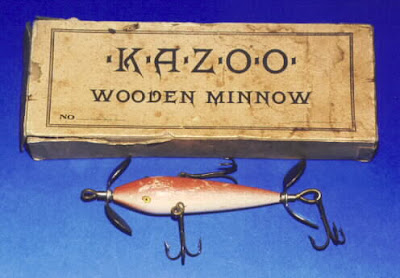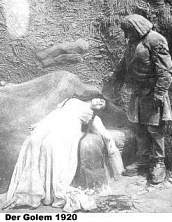 As of today, this blog has had over 100,000 unique visitors since July 2006 (that's when I started counting).
As of today, this blog has had over 100,000 unique visitors since July 2006 (that's when I started counting).Friday, May 25, 2007
100,000 people
 As of today, this blog has had over 100,000 unique visitors since July 2006 (that's when I started counting).
As of today, this blog has had over 100,000 unique visitors since July 2006 (that's when I started counting).Wednesday, May 23, 2007
Carlo Carra and Metaphysical Art
 La Figlie di Loth 1919 by Carra
La Figlie di Loth 1919 by Carra Madre e Figlio 1934 by Carra
Madre e Figlio 1934 by Carra Daughters of Lot 1940 by Carra
Daughters of Lot 1940 by CarraItalians Carlo Carra and Giorgio De Chirico were friends. They created an art movement called Pittura Metafisica or Metaphysical Art (1917) which influenced surrealism and dada. Mysterious, poetic and dreamlike, their paintings looked to the past for inspiration - to the work of Italian artists like Giotto in particular. They made poetry out of familiar objects by isolating them or placing them together in claustrophobic rooms or outdoors in shadowy Italian squares. Both painters were concerned with giving the objects an inner life of their own through odd juxtapositions and simple, almost stark rendering that pointed to a "higher, more hidden state of being" (Carra). This selection of Carra paintings are later works, but they still show his metaphysical tendencies. I have always been very inspired by the works of Carlo Carra (I don't really relate to his early futurist works, however) and by the metaphysical works of Giorgio De Chirico.
Metaphysical Art
The Art of Amy Crehore
Der Golem
"In the 16th century, the Jews of Prague face persecution. Rabbi Loew creates a giant golem out of clay to protect the people. Unfortunately, the creature rebels and wreaks deadly havoc. In the end, a small girl stops the golem by removing the magic star from its chest."
Starring Paul Wegener as the clay monster which inspired other monsters in cinema.
It ran in NYC for ten months in 1923. I like the poster art.
Kazoos and Old Lures
 Cat Kazoo with Plaid Britches
Cat Kazoo with Plaid Britches 1907 Kazoo fishing lure
1907 Kazoo fishing lure Rhodes Mechanical Frog lure - before 1910
Rhodes Mechanical Frog lure - before 1910Antique Lures
Electrizooka via Makezine (How to make an electric kazoo)
Tin Man Tin Toys (Cat Kazoo)
Kazoos (Kazoo in Popular Music)
Here are some links that I found while surfing around. The Hokum Scorchers always played kazoos, a popular instrument in hokum music. I like this cat kazoo that I found on a tin toy site. Kazoos come in all shapes and sizes, but the metal ones are best. Makezine blog featured an "electrizooka" that someone invented. I also found an old fishing lure called the "Kazoo". This antique mechanical frog lure is pretty cool, too.
I will actually be painting a fishing lure sometime soon. I'll tell you more about that later.
The Art of Amy Crehore
Tuesday, May 22, 2007
Paintings
 Armand Point painting
Armand Point painting Robert Henri Painting
Robert Henri Painting Bernhard Gutmann Painting
Bernhard Gutmann Painting Arthur Hacker Painting
Arthur Hacker PaintingPaintings by painters. A timeless art form.
Even in this digital age, people are still sucked in by the quiet power of soulful painting.
The Art of Amy Crehore
The Art of Amy Crehore
Monday, May 21, 2007
And Venus was Her Name
This exotic creature may just show up in my next painting.
I'm currently working on something for a show at Roq la Rue gallery in Seattle, WA -opening June 8th -"Venus" - an invitational group show exploring the theme of the feminine as muse, in whatever incarnation that may take - Artists: Lori Earley, Audrey Kawasaki, Travis Louie, Marion Peck, Glenn Barr, Kukula, Stella Im Hultberg, Isabel Samaras, David Bowers, Lynne Naylor, Chris Reccardi, Sas Christian, Gail Potocki, Joshua Petker, Fuco Ueda, Boomer, Krysztof Nemeth, Derek Nobbs, Jessica McCourt, Nicole Steen, Sarah Joncas, Amy Crehore, Rik Garrett, Sarah Bereza and Robert Pitt. Stayed tuned. (P.S. Actually had a cat named "Venus" once and she was wild, too.)
The Art of Amy Crehore
I'm currently working on something for a show at Roq la Rue gallery in Seattle, WA -opening June 8th -"Venus" - an invitational group show exploring the theme of the feminine as muse, in whatever incarnation that may take - Artists: Lori Earley, Audrey Kawasaki, Travis Louie, Marion Peck, Glenn Barr, Kukula, Stella Im Hultberg, Isabel Samaras, David Bowers, Lynne Naylor, Chris Reccardi, Sas Christian, Gail Potocki, Joshua Petker, Fuco Ueda, Boomer, Krysztof Nemeth, Derek Nobbs, Jessica McCourt, Nicole Steen, Sarah Joncas, Amy Crehore, Rik Garrett, Sarah Bereza and Robert Pitt. Stayed tuned. (P.S. Actually had a cat named "Venus" once and she was wild, too.)
The Art of Amy Crehore
Sappho - A Passionate Muse
.jpg) Sappho by Dannecker 1800
Sappho by Dannecker 1800 Sappho 1877, Charles-August Mengin (1853-1933), Oil on canvas
Sappho 1877, Charles-August Mengin (1853-1933), Oil on canvas Sappho, World Noted Women. New York: D. Appleton and Company, 1883.
Sappho, World Noted Women. New York: D. Appleton and Company, 1883. Sappho , (Le coucher de Sappho), Charles Gleyre, 1867
Sappho , (Le coucher de Sappho), Charles Gleyre, 1867Sappho was a Greek poet who lived around 600 BC. She wrote about love, yearning and reflection. "Most of her poems (Aeolic dialect), which were always set to music, describe erotic passion and its consequences. She was a lyric poet who developed her own particular meter, known as sapphic meter, and she was credited for leading an aesthetic movement away from classical themes of gods, to the themes of individual human experience. Sappho speaks in the first person and describes her own experiences."
-Read more HERE by Michael Lahanas
Also, there is a nice collection of female images, including Mengin's "Sappho" (which I think is an amazing painting), at Sensual Arts
The Art of Amy Crehore
Subscribe to:
Comments (Atom)




